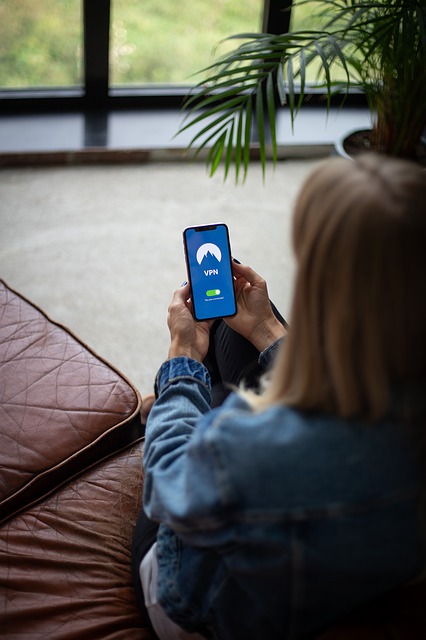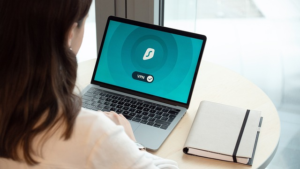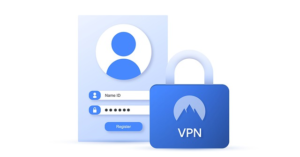
Getty Images
These days, online privacy is more important than ever. Reports on cyberattacks related to Russia’s war in Ukraine are flooding news and social media feeds. Ukraine is under siege, not only by the Russian army, but also by hackers trying to cripple it and isolate it from the world. With the U.S., alongside other countries, imposing severe sanctions on Russia, cybersecurity professionals are now urging Americans to increase their online protection as well.
Top products in this article:
Best-rated VPN: ExpressVPN, $6.67/month and up
Best budget VPN: Surfshark VPN, $2.49/month and up
Best VPN deal: Private Internet Access, $2.03/month and up
A few hours before the Russian invasion, malware named “FoxBlade,” designed to target Ukraine’s digital infrastructure, was detected by Microsoft’s Threat Intelligence Center. Since then, criminals have tried to take control of the social media accounts of several Ukrainian military officials and public figures. Even Ukrainian civilians and private institutions across many sectors are now digital targets.
Meanwhile, in Russia, Vladimir Putin‘s government has restricted civilian access to Twitter and Facebook. This censorship has made it more difficult for antiwar groups to organize or get reliable information.
As a result, the demand for virtual private networks (VPNs) has soared in both countries as Internet users in Ukraine scramble to protect themselves from cyberattacks, and as civilians in Russia attempt to circumvent restrictions and censorship. And with the U.S. clearly opposing Russia’s invasion, cybersecurity professionals are urging Americans to rethink their online protection.
To help beef up your security, CBS Essentials has rounded up a selection of the most highly rated VPNs on the market. One of these VPN services can give you an extra layer of digital security.
What are the benefits of using a VPN?
A virtual private network (VPN) is software designed to protect your devices from cyber criminals and prying eyes. VPNs cloak IP addresses and encrypt your internet traffic, making it all but impossible for snoops to know what sites you’ve been visiting and what data you’ve been transmitting.
VPNs are commonly used by those who transmit sensitive information. Some businesses require work-from-home employees to use them. Individuals also use VPNs to increase their level of cybersecurity when using a public hotspot — public Wi-Fi networks are hunting grounds for cyber criminals. And, of course, people can and do use VPNs to get around government censorship, though, in those countries, using a VPN in that manner is often illegal.
Some people use VPNs to get around region restrictions on streaming sites and access the full international Netflix library. While it’s not illegal to do so, it is not allowed by the Netflix terms of use.
5 VPNs that will help protect you from cyberattacks
There are many virtual private network services available, but these five are the most highly rated by industry reviewers and offer the best value for your money.
ExpressVPN: $6.67/month and up
ExpressVPN
ExpressVPN, hailed by many reviewers as the best VPN provider, gets a lot of praise for its quality of service and coverage. Offering a 30-day, risk-free trial, ExpressVPN has a network of high-speed servers in 160 locations across 94 countries, giving users reliable connectivity from most areas in Europe, Asia and the Americas. With service plans that currently start at $6.67 monthly, ExpressVPN offers the same encryption standard used by security experts and the U.S government, plus IP address masking, support for up to five simultaneous connections, and 24/7 responsive live chat support. And it’s easy to set up and use.
Service plans currently start at $6.67 per month. Right now, subscribers can get three months free when opting for the 12-month plan. That’s a savings of 49%.
ExpressVPN, $6.67/month and up
NordVPN: $3.99/month and up
NordVPN
NordVPN is the most popular VPN service in terms of market share. With NordVPN, you get connection speeds of up to 6,730 Mbps, the same advanced encryption standard as ExpressVPN, plus 24/7 live chat support and more than 5,100 servers in 60 countries. NordVPN has extra features like a password manager, cloud file encryption and 10 GB of private cloud storage that you can add to your plan. You can connect up to six devices simultaneously.
NordVPN is offering up to 60% off its one- and two-year plans right now, bringing the entry price down to $3.99 a month. The service comes with a 30-day, money-back guarantee.
NordVPN, $3.99/month and up
Surfshark VPN: $2.49/month and up
Surfshark
Budget-conscious users will appreciate the value Surfshark VPN offers — the same advanced encryption standard as its pricier rivals above. While other services limit your VPN usage to only five or six devices, Surfshark VPN protects an unlimited number. It has only 3,200 servers, fewer than NordVPN, but they are spread across more than 65 countries. Starting at $2.49 a month, this service also allows specific apps, website and and streaming services to bypass the VPN for your convenience.
Surfshark is offering an 81% discount on its two-year plan, or a 69% discount if you opt for a one-year commitment.
Surfshark VPN, $2.49/month and up
Private Internet Access: $2.03/month and up
Private Internet Access
The Private Internet Access VPN service is a good value if you’re willing to commit to a three-year plan. The network is optimized for 10 Gbps and boasts more than 35,000 servers spread across 84 countries. It uses open-source VPN applications and protocols like WireGuard for encryption. Plans include coverage on up to 10 devices simultaneously, plus a dedicated IP address and an email breach monitor. Private Internet Access offers 24/7 chat support should you need assistance.
Commit to a three-year plan and you’ll get an 80% discount, plus a free year of Boxcryptor service for cloud file encryption.
Private Internet Access, $2.03/month and up
CyberGhost VPN: $2.29/month and up
CyberGhost
With more than 7,500 servers in 91 countries and ultra-fast speeds that rival those of ExpressVPN and NordVPN, CyberGhost VPN is certainly in the conversation when it comes to the best VPN in 2022. The company’s plans include the same high-level 256-bit AES encryption as more expensive providers, plus automatic Wi-Fi protection and simultaneous support of up to seven devices.
CyberGhost VPN, $2.29/month and up


